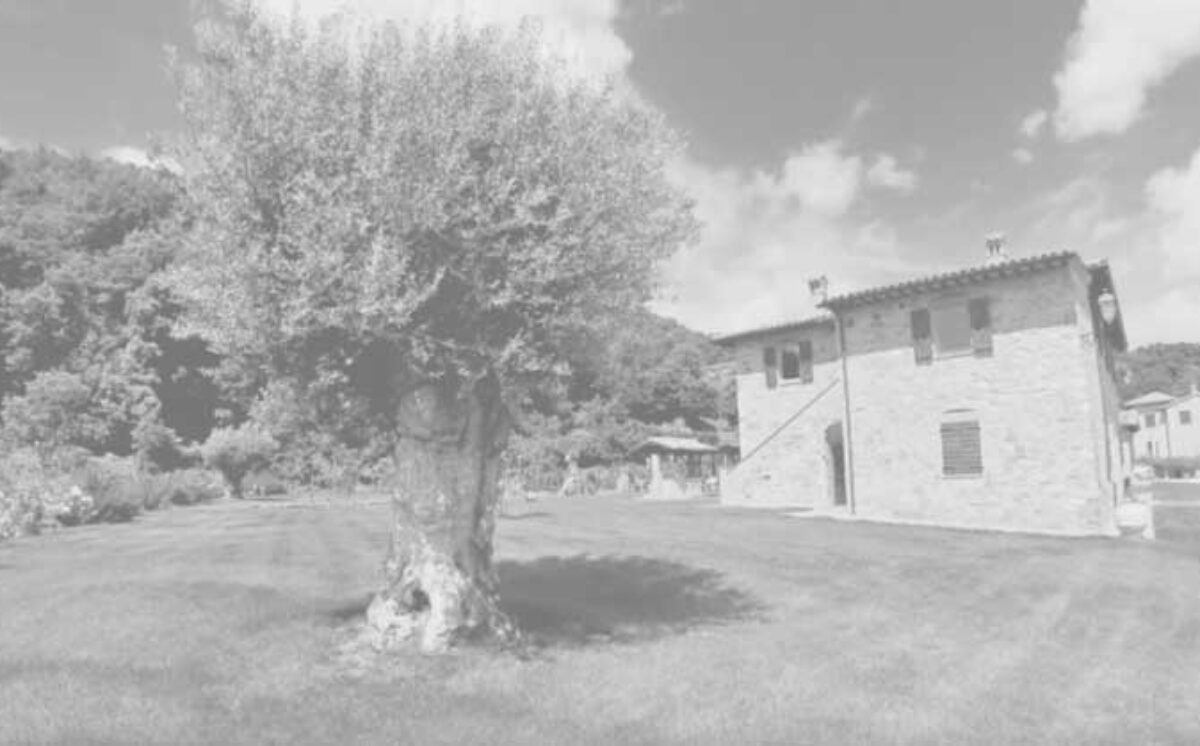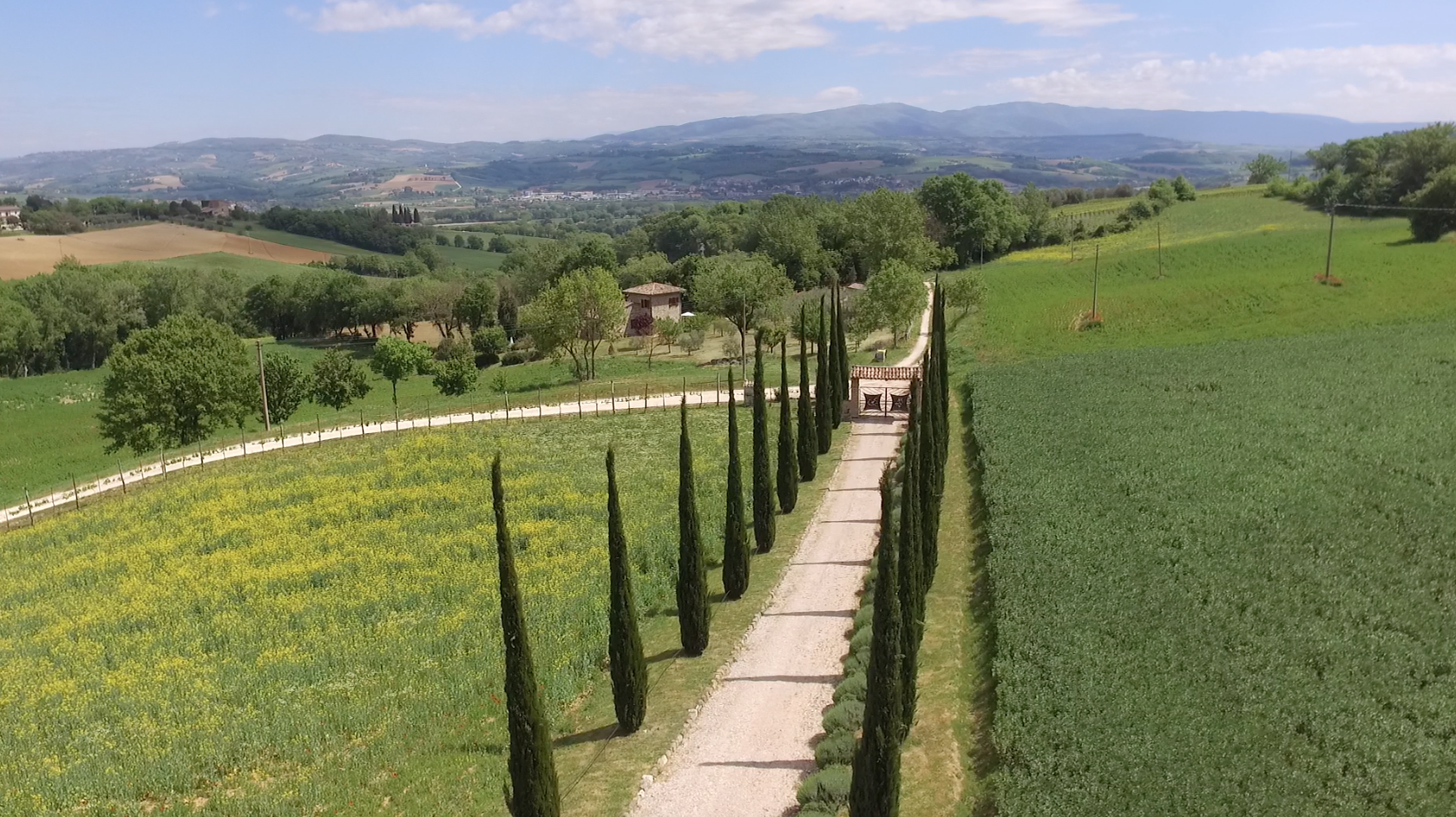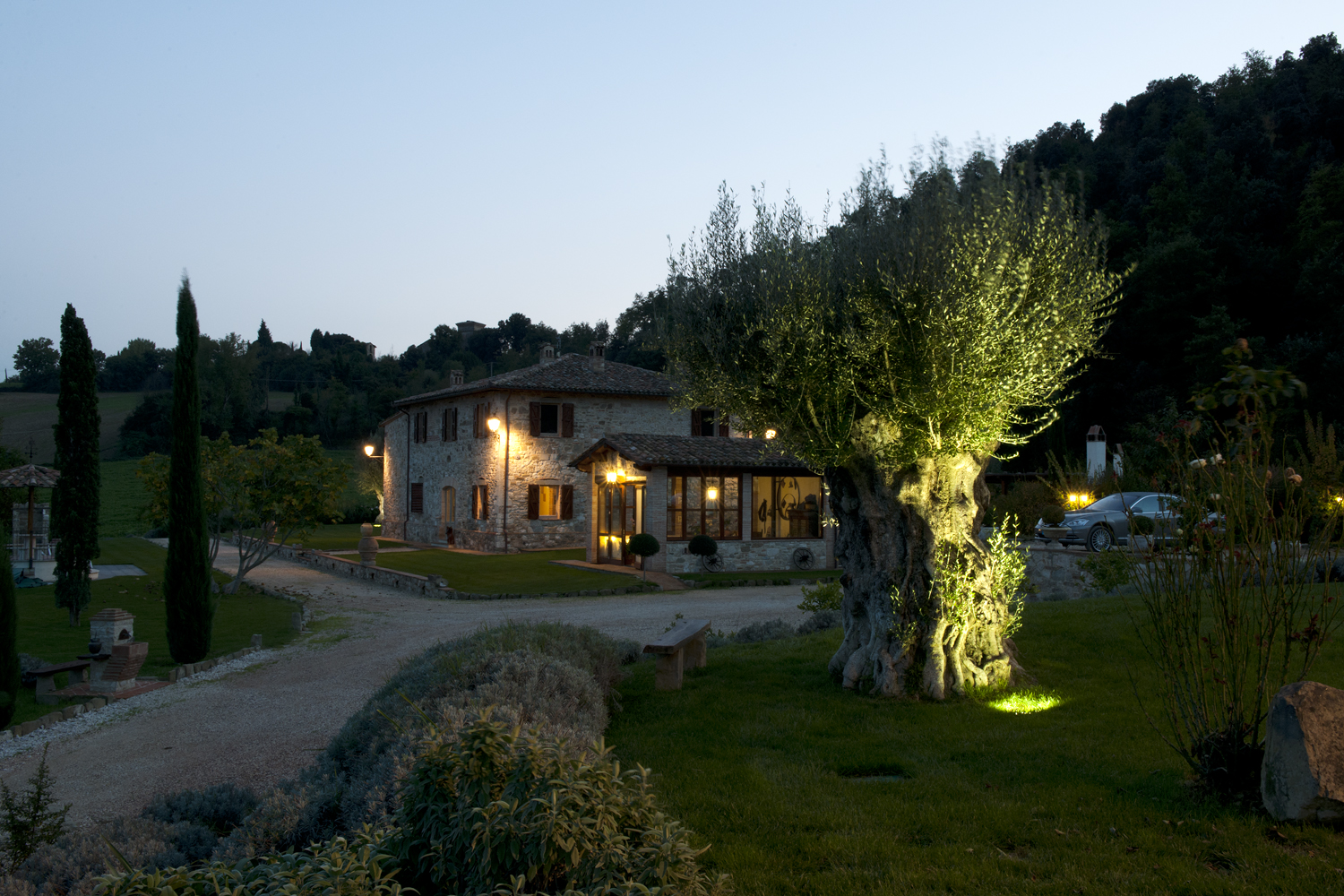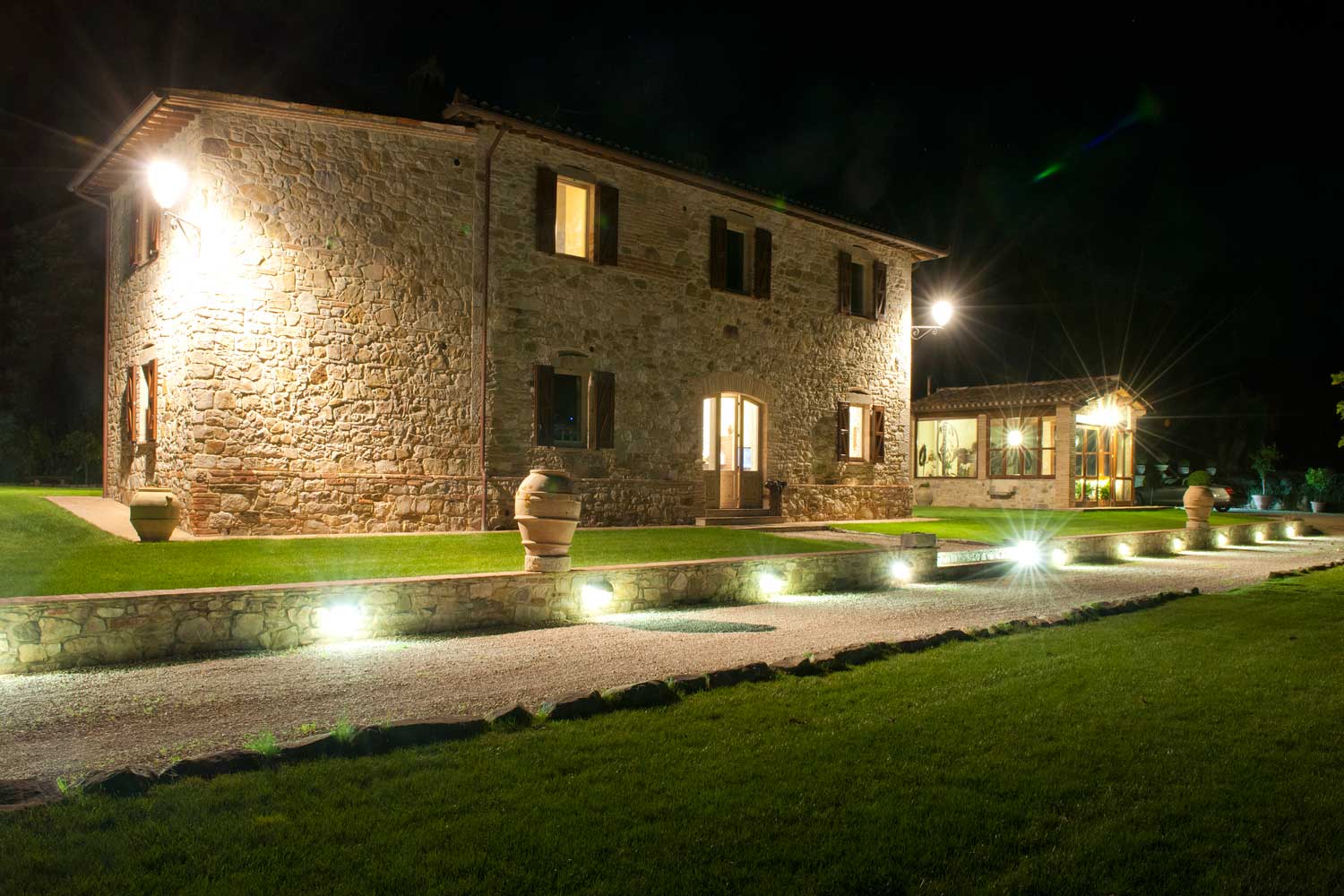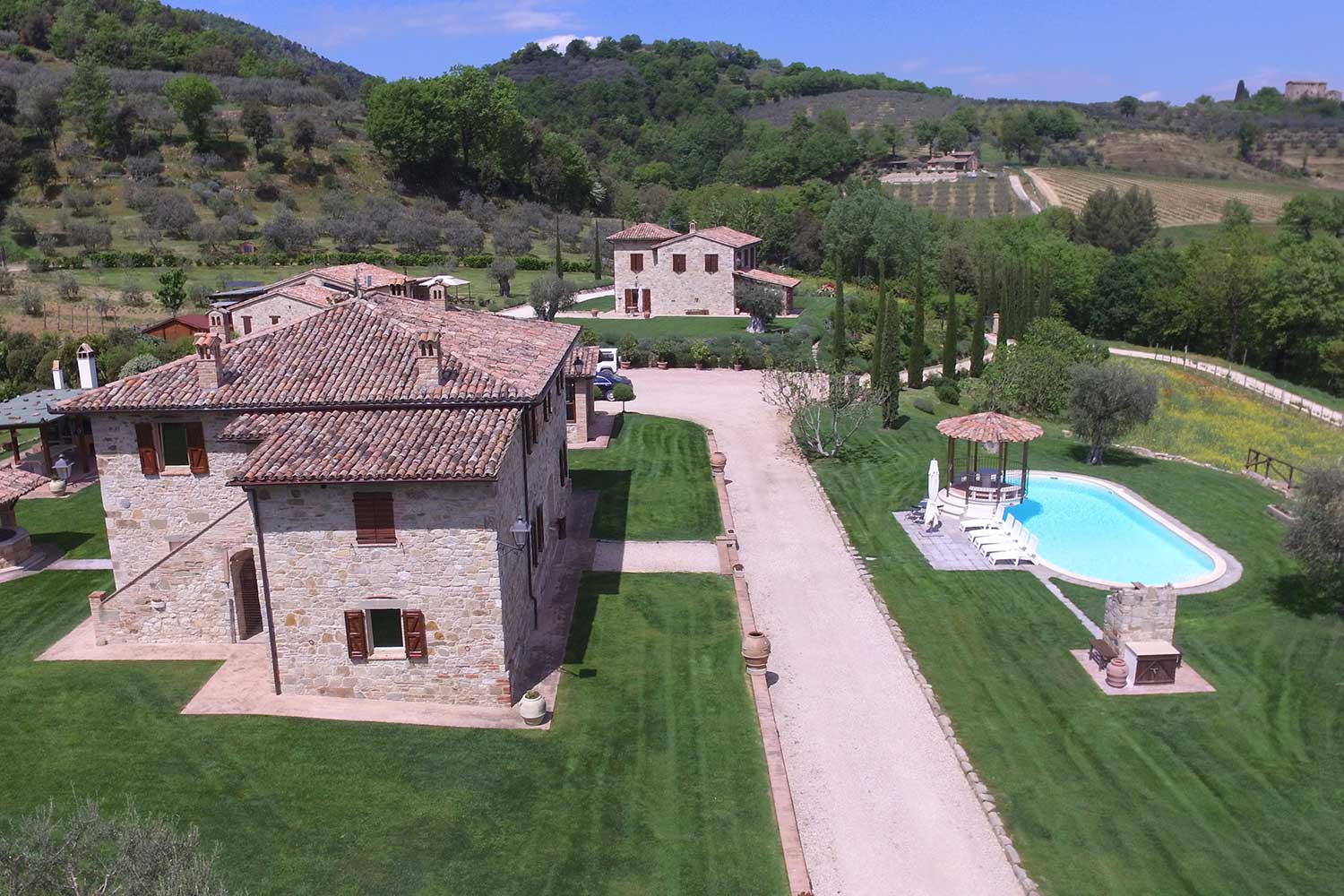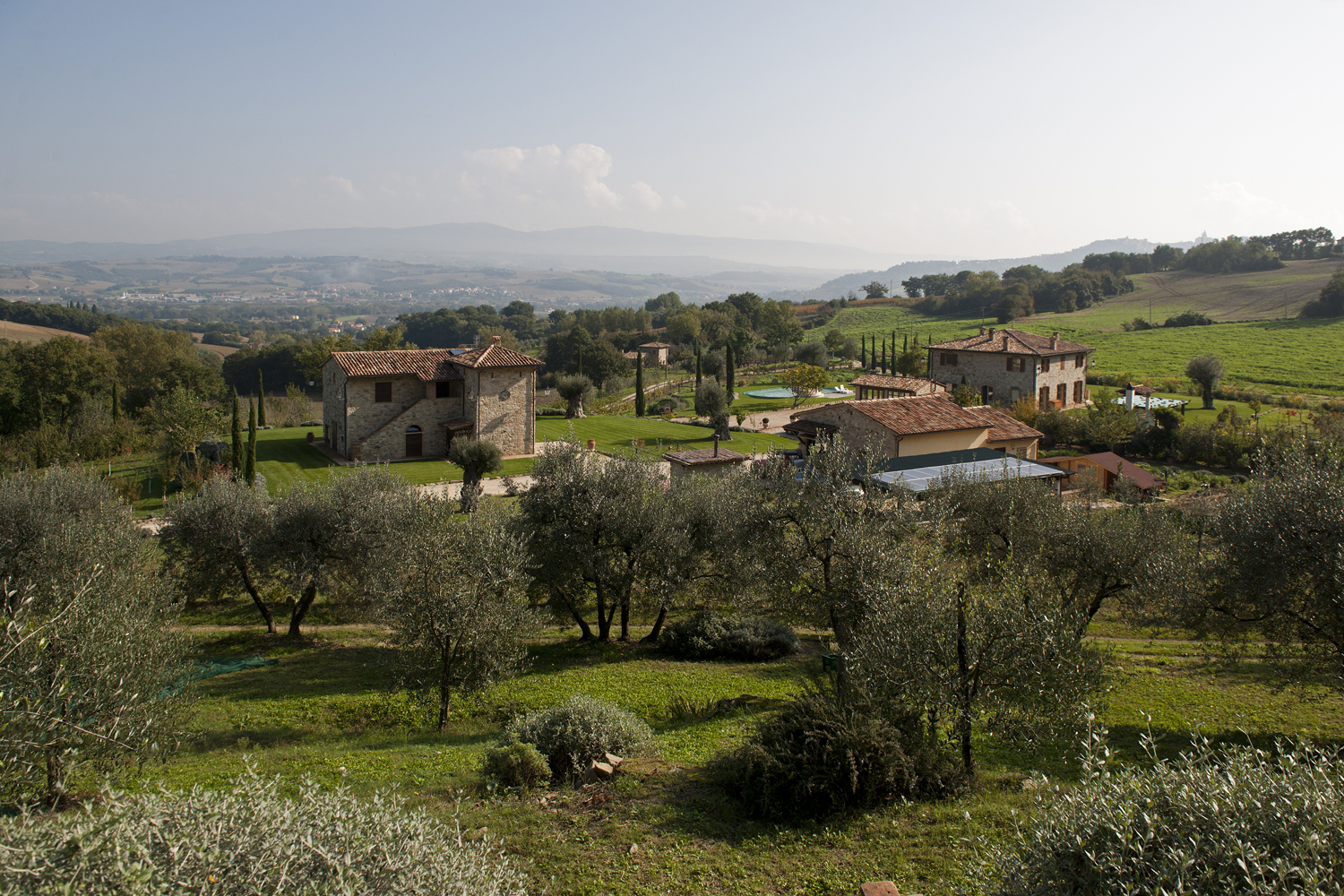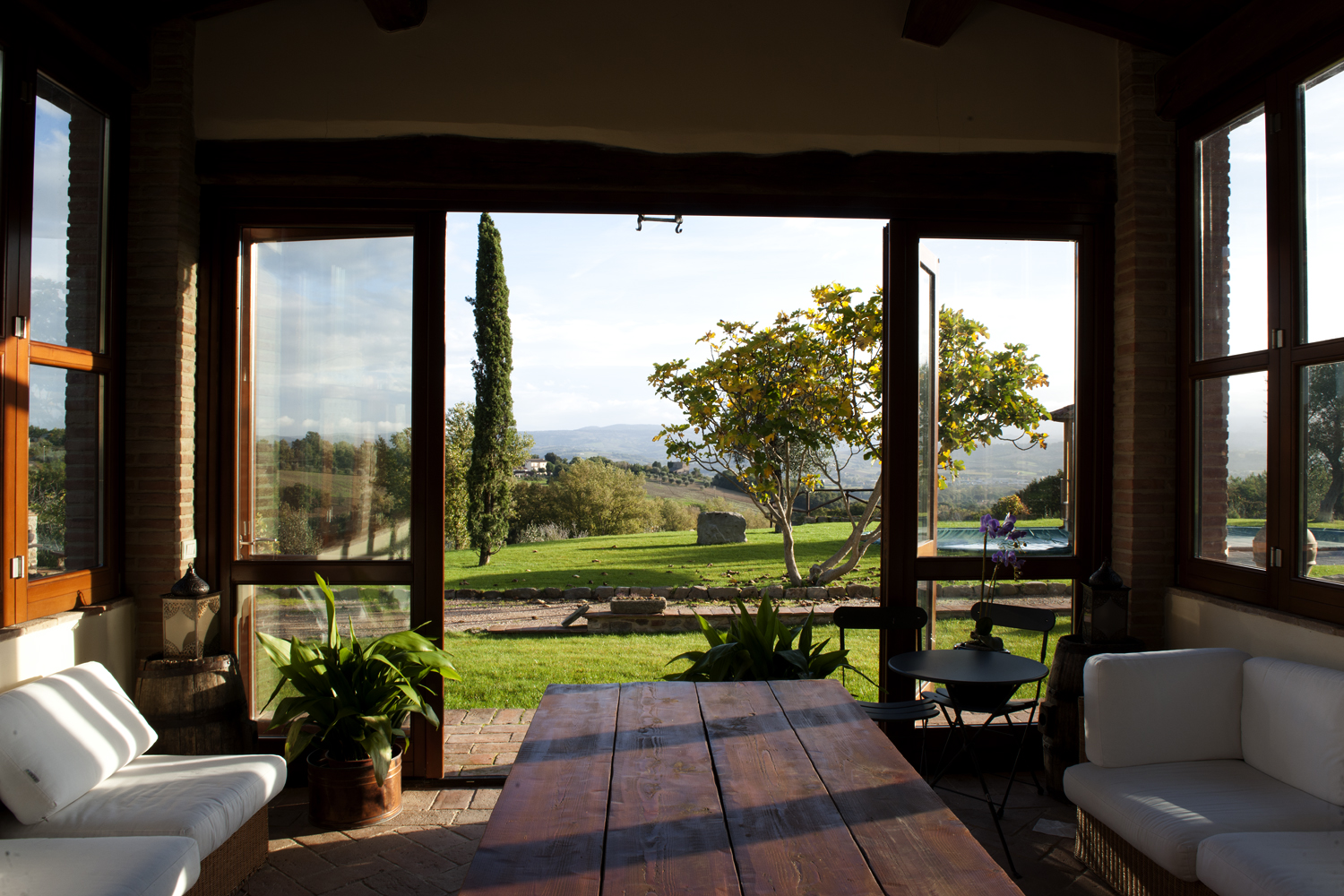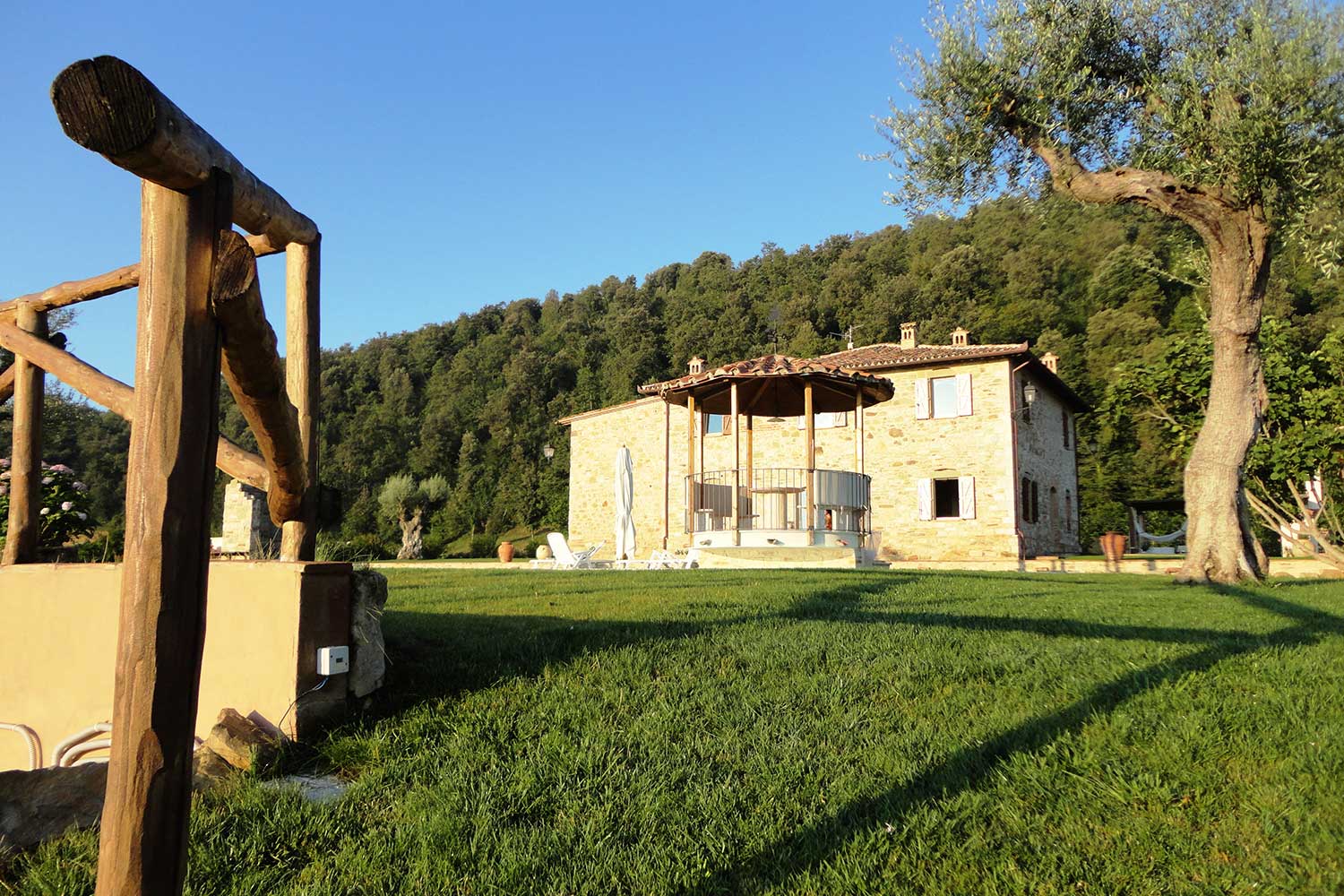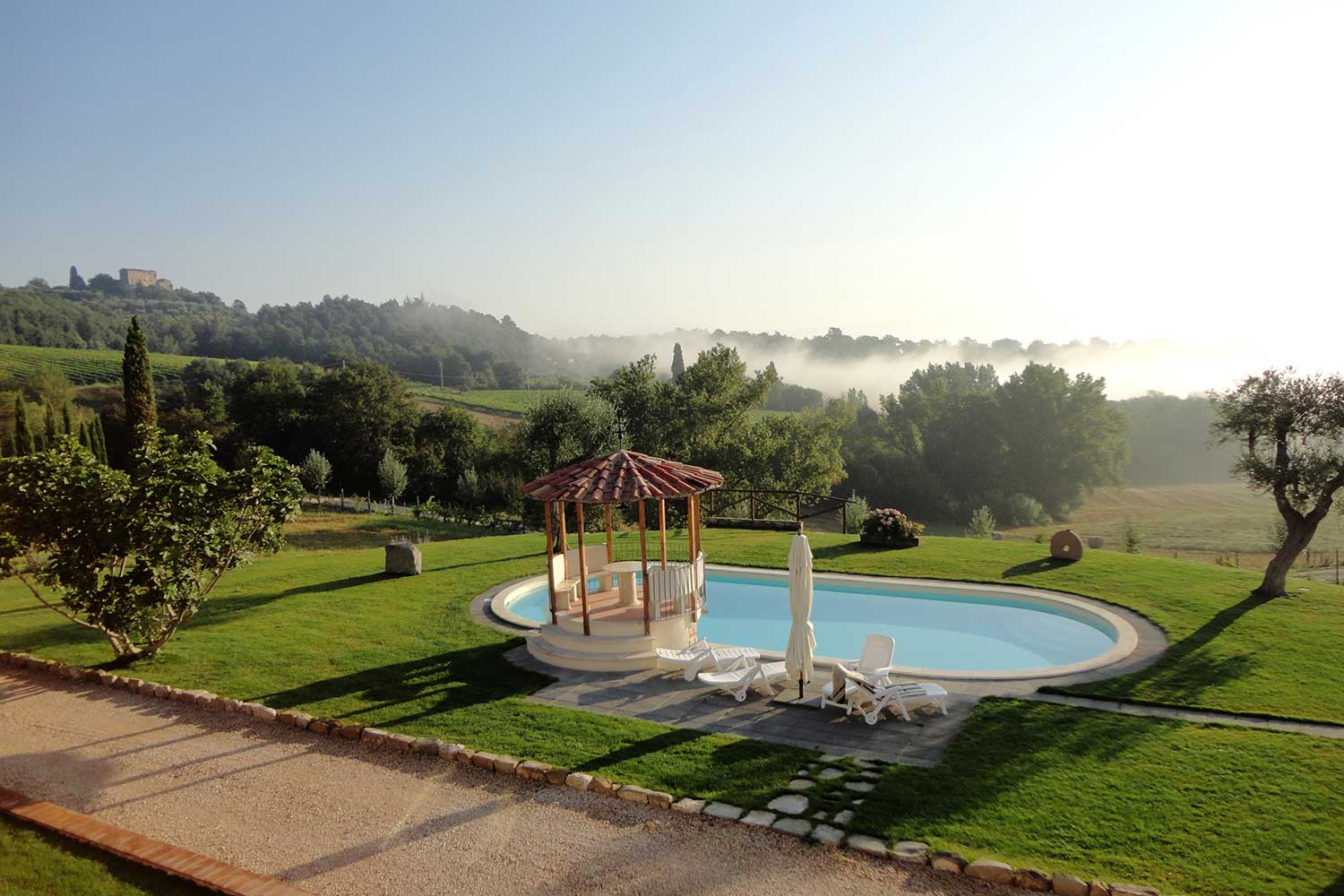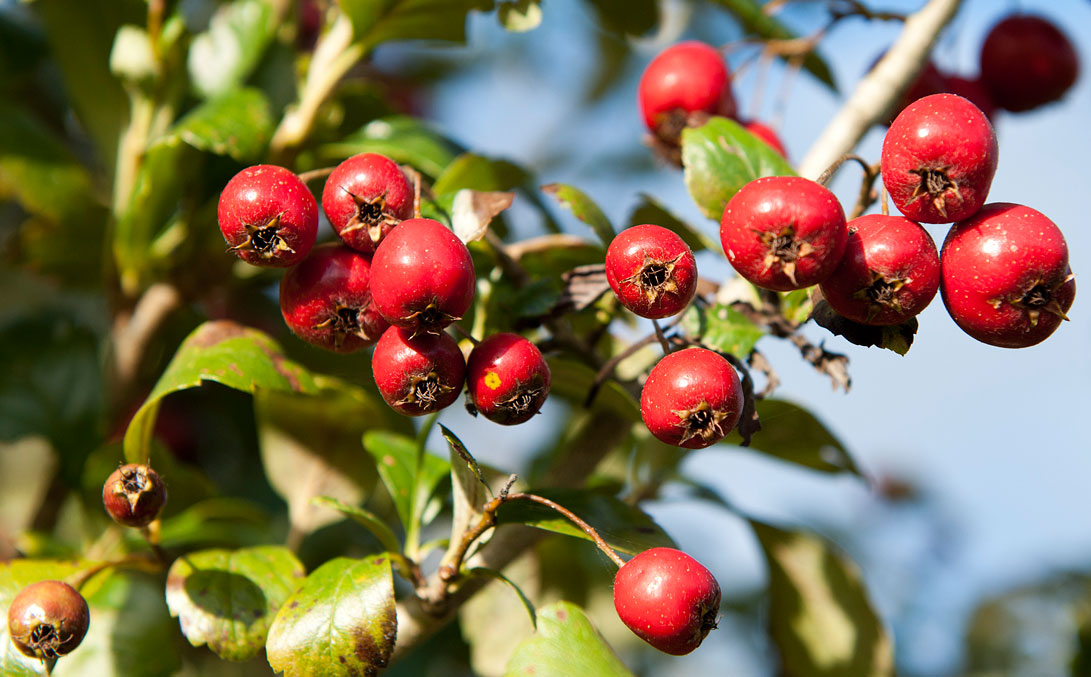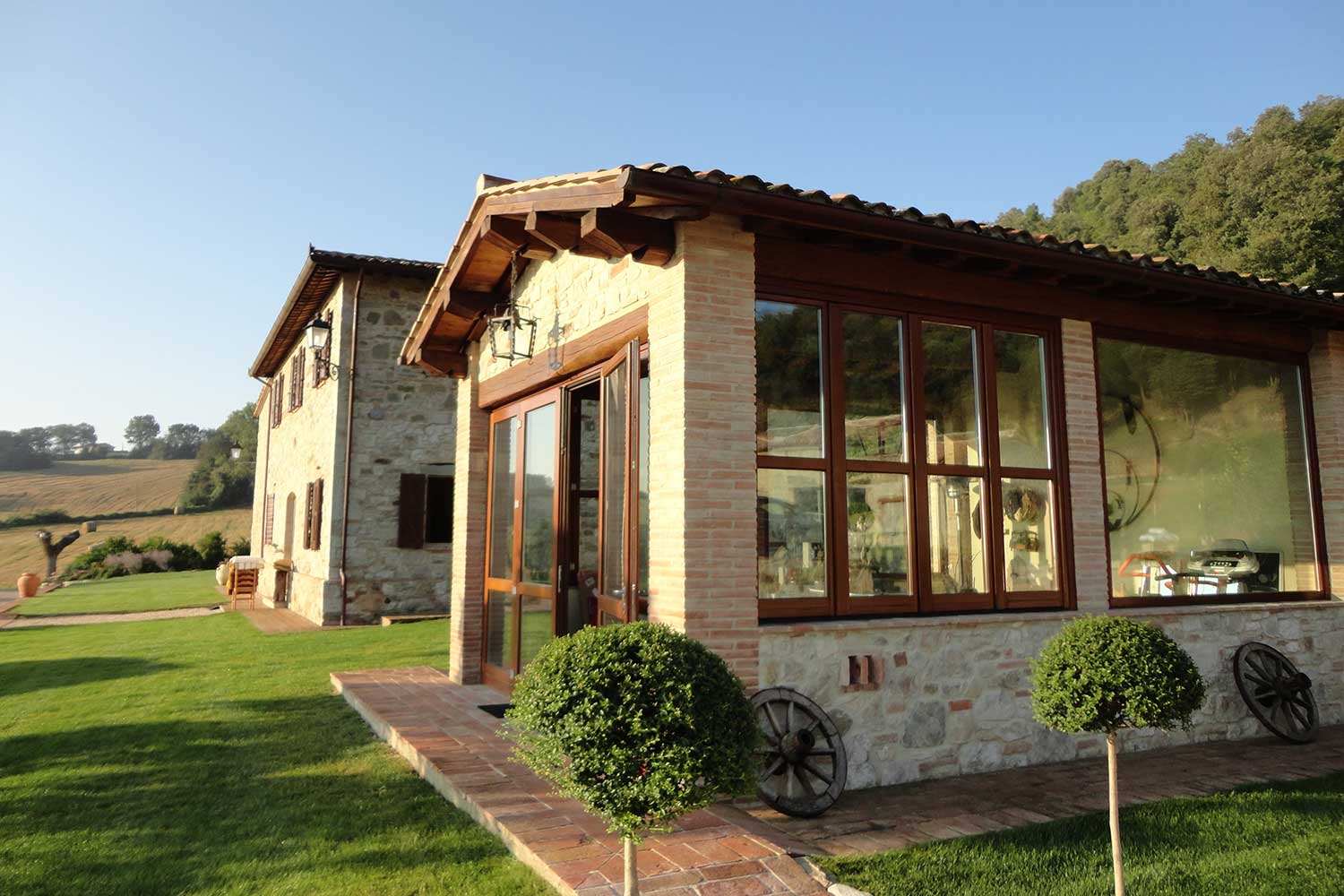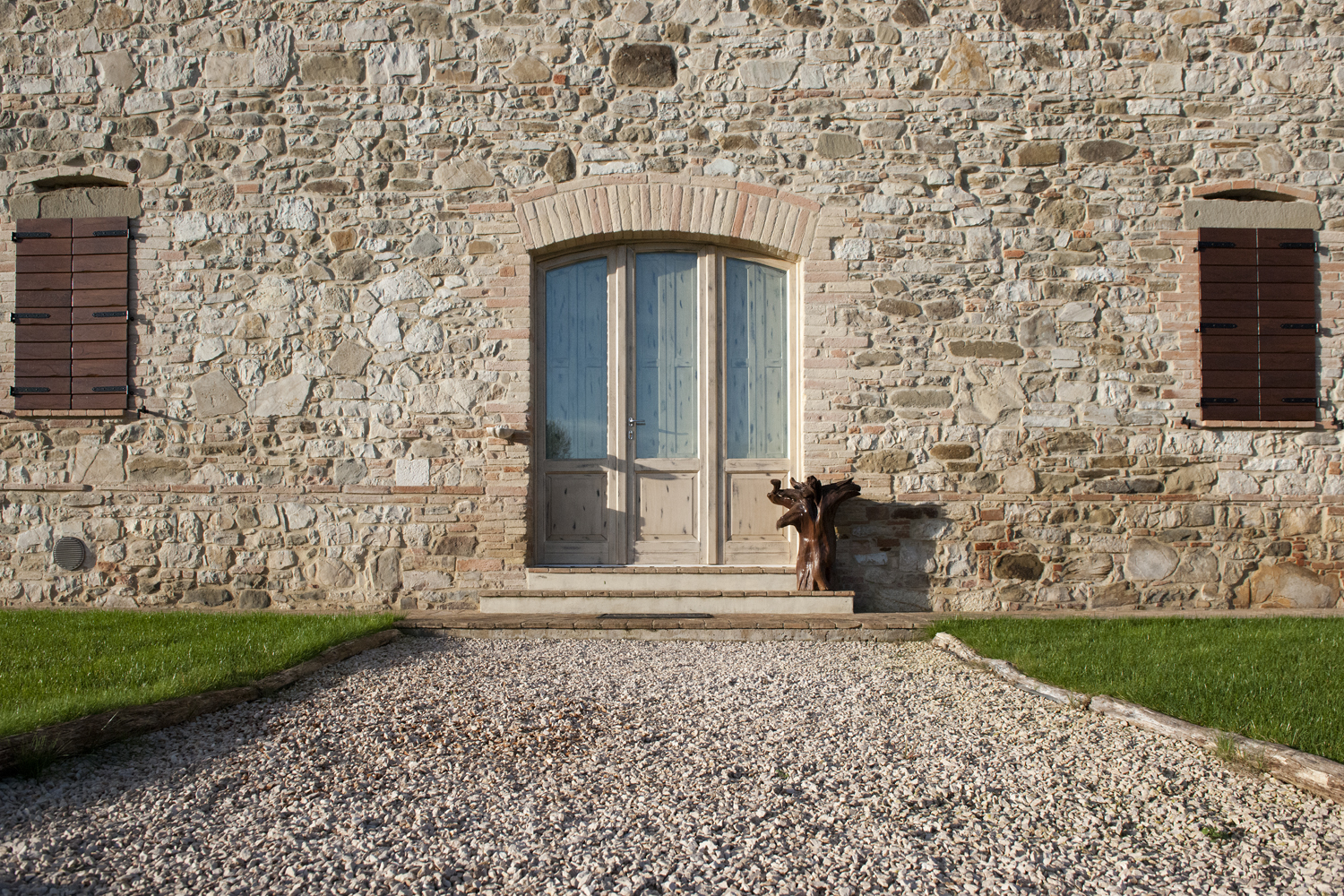A TASTE OF PARADISE IN THE UMBRIAN COUNTRYSIDE
In this extraordinary estate near Todi, expertly restored to its former glory, you will be able to immerse yourself into uncontaminated silence, only occasionally interrupted by the murmurs of the forest. For a few days forget the real life, the city and work. We wish your experience at the Passo della Palomba estate, which only partially represents the beauty of the places surrounding it, will entice you to visit them in person.You will be welcomed by the warm hospitality of our family and will be able to participate in events organized in our estate or embark in excursions to nearby places, full of history, fantastic towns and hamlets, always with delightful views
HISTORY
The background to the name of the estate originates from “palombe” (“guinea fowls”), that fly over this very area during their incredible voyage that takes them every year from Africa to Europe at the beginning of the month of October. This delightful Nineteenth Century estate, perched on the hills 3 kilometres from Todi, not far from the hamlet of Cecanibbi, named so after a war camp created in this area by Hannibal’s army, who at the time was already blind by one eye (“cieco” meaning blind in Italian), during the military expedition that would have taken him to fight against the ancient Roman Army. The beauty of this location, its position, and the presence of several examples of hawks (nibbio), gives also another clue of the origin of the name: the “nibbio”, a bird used in various techniques of falconry, which was blinded with a hood before
hunting. The estate was abandoned for decades and almost in ruins, but was nevertheless ready to reveal all of its ancient beauty to those willing to see it and when Alessandro and Claudia Gilotti, together with their sons Stefano and Luca, first saw it, it was love at first sight. The Palomba (or colombaccio) also inspires the brand name and logo that the Gilotti family wanted to give to this charming estate: a head of a Palomba turned to one side, as if observing and protecting the estate and its guests. A skilful “philological” restoration, based on the reutilization of all the original materials that could be recouped, has returned its soul to this enchanting estate, following four years of hard work and dedication. Passo della Palomba now opens its gates to nature, dominated by a panorama of harmony, beauty and charm that bears no comparison, and at the same time expresses all the love that the Gilotti family have for these lands.
Visit the terracements made with the ancient tecnique peasant drywall, ideal for the cultivation of olive trees. (Interesting terracements built with enchanting mastery, using dry stone technique lean out in the olive grove area, on the hill overlooking the “Casali of Passo della Palomba estate”. The aim of the terracements was to contain the steep terrain in order to realize ample flat areas where to grow olive trees.These are very interesting constructions witnessing the ingenuity of the farmers and their fight for survival. This kind of terracement is very effective for the olive trees farming allowing them to get maximum sunshine and improve the quality of the olives produced. The name, “Pietra a secco” (dry stone)indicates how the building elements of the supporting wall are put side by side without the need of any mortar. The walls so realized can have different heights depending on the steepness of the land in which they are built and length equally variable also depending on the characteristics and the segmentation of the land. Generally, at the base of the wall which is much larger, a flat area is realized (called foot) that can be walked easily creating the possibility of interesting walks along the walls. In the Passo della Palomba Estate there are beautiful examples of these ancient constructionsand interesting is also to walk along them, admiring with amazement how they can still stand after so many years. The walls are generally tapered on top with a slant towards the land. This shape helps a better containment of the land. They also have another function which is that of stopping the chaotic flow of the rain water forcing the rain to gently flow through the stones creating no damages.
TERRACEMENTS
The hunting lodge is one of the most characteristic sites of Passo della Palomba. It is situated at the top of the hill, at some 450 mt height, easily spottable thanks to two old cypress trees that crown it. The hunting lodge is an old hunting post from where the original owner of the estate, maybe more comfortably settled then all the other hunters, was hunting “palomba” comfortably seated near the fireplace and with the rifle barrel leaning out of the suitably oriented window. The hunting lodge has been recently restored and equipped with water and electricity. To reach it one can simply walk up the hill, diving into the woods, going through the “Via Scura “ or, for those fit enough, through the so called “direttissima”.
THE HUNTING LODGE
When reaching the summit, the lodge will magically come into view, and it will almost feel like one is entering into a world of fairies. The flat roof of the lodge has been equipped to be a wonderful “solarium” from where to enjoy a breathtaking view. One can see the whole “Tiber Valley” from north to south and even spot at a distance “Assisi”, Mount “Subasio” and the “Monti Martani” mountain range. Spending a day at the lodge preparing a barbecue, or reading a book while sunbathing on top of the world, is definitely a unique experience. Even more unique of an experience is spending a night at the lodge. The roof solarium at night becomes an excellent astronomical observatory where to watch the stars without any kind of light contamination.
POESIE LUNGO IL SENTIERO
BOOK YOUR HOLIDAY IN TODI
A wonderful villa with pool surranded by vineyards, olive groves and fruit groves is waiting for you.






